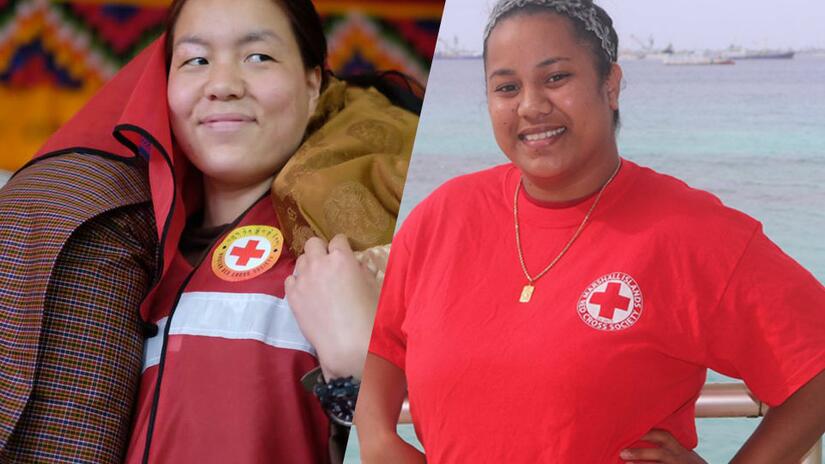Geneva, 5 December 2019 – The two newest members of the International Federation of Red Cross and Red Crescent Societies (IFRC) both consider responding to the humanitarian impacts of climate change as one of their main priorities.
The Bhutan Red Cross Society and the Marshall Islands Red Cross Society were admitted today as 191st and 192nd full members of the IFRC. This was decided unanimously at the 22nd Session of the IFRC General Assembly that is currently underway in Geneva.
IFRC President, Francesco Rocca, said:
“The tiny, mountainous Kingdom of Bhutan and the 29 coral atolls and five low-lying islands that make up the Republic of the Marshall Islands are examples of how the International Red Cross and Red Crescent Movement unites and brings peace and cooperation among diverse countries.
“They are also examples of how humanity is united in a battle against the climate crisis. In both countries, the humanitarian impacts of climate change are real and represent a clear threat to vulnerable communities.”
In Bhutan, climate change is contributing to heavier rains, flash floods and the emergence of new diseases. The Bhutan Red Cross Societies’ staff and 2,400 volunteers in 20 district branches are helping communities prepare by focussing on health, including training bus and taxi drivers in first aid, disaster management and climate change adaptation.
Bhutan Red Cross Society Secretary General, Dragyel Tenzin Dorjee, said:
“The seven Fundamental Principles of the International Red Cross and Red Crescent Movement - humanity, impartiality, neutrality, independence, voluntary service, unity and universality - represent timeless morals and deeply resonate with Bhutan's own guiding philosophy of gross national happiness, which places human welfare as the most vital objective of the Royal Government.”
The Marshall Islands Red Cross Society began as a small but dedicated group of volunteers who wanted to help drought-stricken communities in 2013. It has now grown into an organisation that focuses on health, disaster management, climate change adaptation and volunteer mobilisation, and its network of 50 volunteers includes 11 emergency response teams across the country of 75,000 people.
Marshall Islands Red Cross Society President Dr Alexander Pinano said:
“Our country is at the forefront of the global climate crisis. Even as I speak, we are facing climate change-related increases in diseases including dengue fever as well as drought and regular coastal inundation because of large swells and king tides. Our volunteers are actively supporting their communities and we are proud to continue to do so as an official part of the International Red Cross and Red Crescent Movement.”
Press release
Red Cross Red Crescent humanitarian leaders agree on a road map to alleviate the suffering in MENA
Red Cross Red Crescent humanitarian leaders agree on a road map to alleviate the suffering in MENA
| Press release

